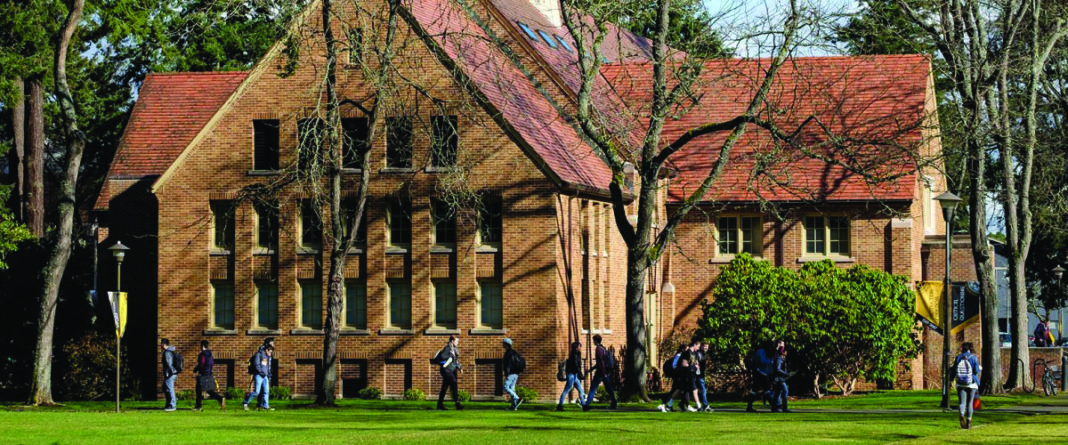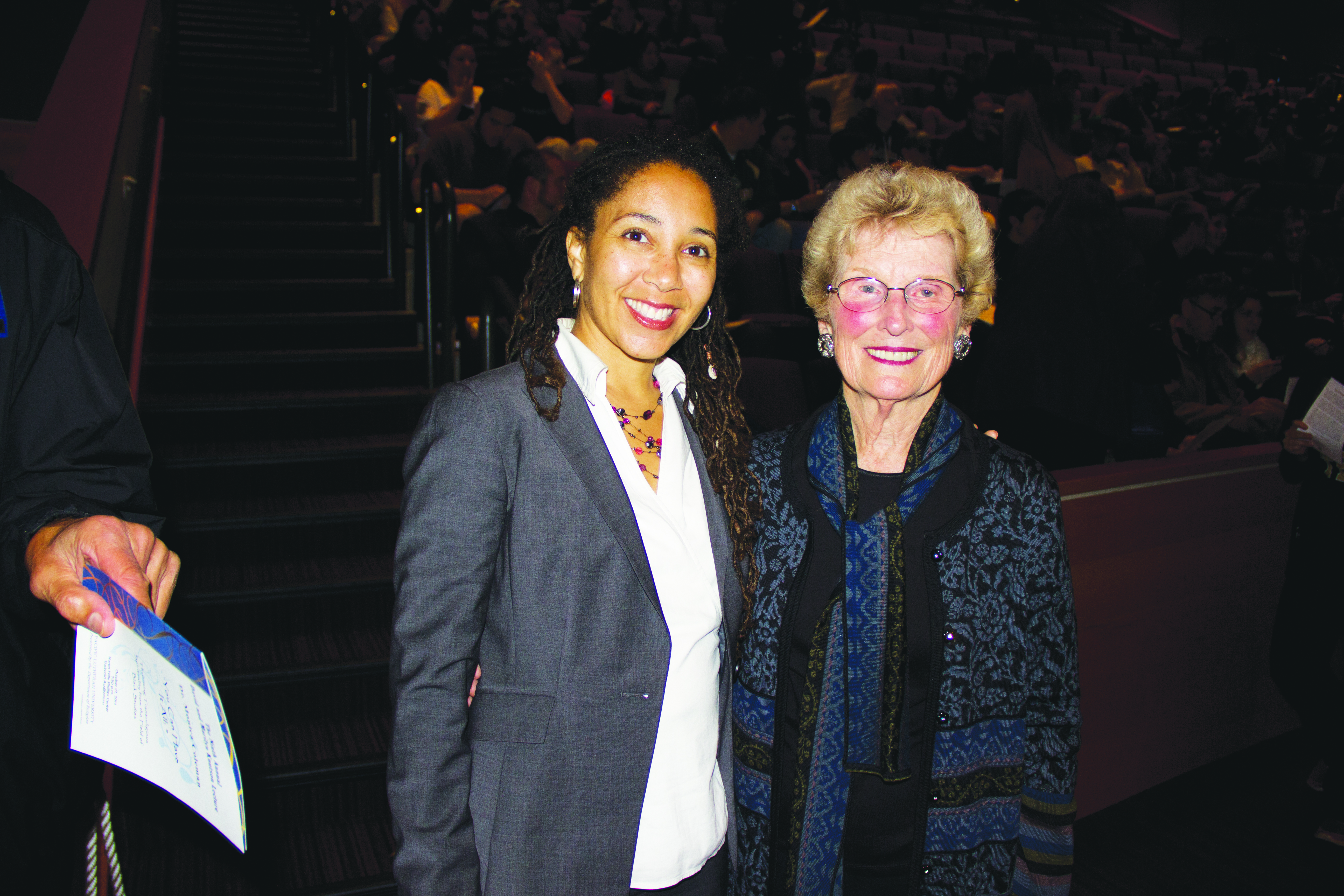Brennan LaBrie
News Editor
Kiyomi Kishaba
Opinion Editor
A virtual forum on February 10 aimed at informing students about the ongoing Faculty Joint Committee (FJC) process only led to more discontent among the student body, who felt the forum failed to answer their pressing questions.
During the hour-long forum, the Zoom chat erupted with questions from students as the speakers — President Allan Belton, Provost Joanna Gregson, Vice President of Student Life Joanna Royce-Davis, Dean of Social Sciences Anna Leon-Guerrero, and Chair of the Faculty Bridget Yaden — read prepared statements. By the time the moderator, ASPLU President Gracie Anderson, began relaying questions to the speakers, the allotted time was almost up. This only exacerbated the tension in the chat.
The Faculty Joint Committee is made up of PLU faculty who are tasked with reviewing academic programs and making recommendations to the president on which programs to resize or cut to help ease financial strain on the university. The FJC’s webpage blames a “changing education landscape,” involving rising costs for universities paired with decreasing revenue stemming from an ever-decreasing applicant pool. The FJC made several cuts to respond to these changes in the 2016-17 school year, but says the time has come to continue this work. The process is done confidentially, with various stages of proposals privately reviewed by the FJC before the Board of Regents review the final proposal and announce their final decisions to finish the process.
Frustration with the process
Student frustration with this process became evident a week before the forum, when senior History major Zackery Gostisha sent a petition with the signatures of over 150 students and alumni to President Belton on February 3, demanding more transparency in the FJC process. Gostisha attended the first forum and felt the speakers’ noncommittal answers exemplified the lack of transparency he noted in the petition.
“Communication with more than a select few students was nonexistent until months into the FJC’s activities,” Gostisha told The Mast. “That’s incredibly worrying because it signals that the administration doesn’t trust students with crucial information about their own community, and doesn’t think they deserve to know that information, or both. It’s also quite concerning to me that no one has recognized—at least publicly—that any of that silence has been in any way a problem.”
Natalie Muller, a senior Chinese Studies major, shared similar concerns with Gostisha after attending the first forum, in which she asked about the continuation of smaller but important programs such as languages.
“I am most concerned with the cuts that are most likely going to be made to the humanities department as a whole as well as cuts that might apply to the language program. I propose that the university looks into other ways to save than just cutting professors and programs,” Muller said. “Several suggestions were made at the forum by students and I hope that the university takes our suggestions and ideas to heart.”
Between 40 and 50 of the frustrated students attended a debrief directly after the forum, led by Anderson, where they expressed their frustration with the administration and the FJC. Anderson heard these complaints loud and clear. In a later student-run forum, she would share that she felt her position as moderator in the forum had put her in an uncomfortable position between the administration and students, in which she was unable to voice ASPLU’s side of the story or her opinions, which reflected those of the students.
A Letter to the PLU Community
Ten days after the forum, Anderson sent a letter to the PLU community announcing that ASPLU would not participate in any future administration-led forums on FJC in any capacity.
“What it was really about was that ASPLU couldn’t be fairly represented in the forums that they helped organize,” Anderson said.
She wrote in the letter that she was “disheartened by the administration’s lack of genuine response to student concerns regarding the communication of the Faculty Joint Committee (FJC) process” and had hoped the forum would provide transparency by thoroughly answering student questions.
“However, the answers provided by the administration to these questions were noncommittal and equivocal,” she added.
She further wrote that she and ASPLU Vice President Carlos Alvarez had been meeting with Belton, Gregson, and other members of PLU administration about FJC since early December, and had first learned about the process on November 25, just over two weeks after the PLU Budget Committee recommended the convening of the committee. In a December 8 meeting, Gregson and Belton had asked ASPLU when a good time would be to alert the student body of the process, and ASPLU recommended the beginning of J-Term as the latest possible deadline for doing so.
In meetings with Belton and Gregson throughout January, Anderson said she and Alvarez urged the administrators to clearly and consistently communicate information about the process to the student body immediately, adding that they believed it was “already too late” by that time. And yet, by February 3rd when Gostisha sent Belton the petition, there was still no communication about FJC to students.
According to Anderson, Belton told her in a meeting on February 6 that the hesitation in informing the student body was out of “care” for students, as they didn’t wish to add stress to an already chaotic year of distance learning. Since the students have no active decision-making role in the process, Belton and the FJC felt students didn’t need to be informed at the early stages of the process.
“To that, Carlos and I made it pretty clear that that actually is not showing care,” Anderson said. “Showing care is being honest with the student body. Showing care is sharing important, hard information and having hard conversations.”
Four days later, the first forum was held. Shortly thereafter, Anderson received a draft for the structure of a second administration-led forum. She was disappointed to see that it focused on issues surrounding graduation and credits in the event of programs being cut and didn’t address the transparency issue which she felt was the greatest concern of her constituents.
She decided to host a student-led forum right before the second FJC forum on February 21 focused on addressing the student role in the FJC process.
“The student voice doesn’t really have a place in [the process] so really our role as students is to stay informed about it, because there is going to be big changes on campus as a result of this process, and if we don’t know that’s happening and we come back to campus in fall, there’s going to be a bit of a disaster,” she said. “At this point, as student representatives, our job is to stay informed and inform each other.”
The majority of the meeting was spent brainstorming in groups how a future FJC process could be more transparent and student-involved.
While some students urged others not to attend the administration-led forum that night, Anderson encouraged those who had concerns regarding logistical matters such as graduation to attend.
FORUM TWO: The Administration Responds
In the forum held later that night by the faculty, student concerns were addressed with detailed explanations of the FJC process. More specific questions were addressed than in the first forum, and the presenters found themselves defending the lack of transparency perceived by students in the first forum. Belton emphasized that PLU’s faculty-led process is unique compared to other universities currently placed in similar financial situations. He admitted that the Board of Regents has the power to disregard faculty recommendations, but based on previous FJC processes and the validity of faculty recommendations he believes the board will implement the changes recommended by faculty.
Bridget Yaden, professor of Hispanic and Latino Studies, discussed a new amendment made to the faculty handbook based on student concerns regarding Diversity, Sustainability and Justice (DJS) in the FJC process, allowing Belton to make exceptions regarding cuts to faculty of color.
Kristin Plaehn, Executive Director of the Center for Student Success, reassured students that everyone currently enrolled in a major will be able to graduate with that degree regardless of program cuts. However, she suggested that students on the fence of a major declare this spring to ensure their spot in a follow-out program in case the major is cut. Student scholarships will also not be affected based on program changes or cuts.
Belton mentioned that with the change of programs also comes the development of new programs and collaboration between departments. He discussed a possible collaboration between the Business and Nursing Departments to create a Public Health degree, for example.
The faculty fielded other questions regarding program changes and directed students to the FAQ page where the majority of questions from both students forums are addressed in detail.
Plaehn further directed students concerned with the future of their major or scholarships to the Center for Student Success.
Another informational administration-led forum is planned for some point in March. The final recommendations are set to be delivered to Belton in mid-March, after which they will be presented to the Board of Regents, whose final decision will be announced to the PLU community in late March or early April.
Gostisha hopes that the remainder of this process will involve greater transparency from administration, and that the student concern about this go-round is taken into account for any future convenings of the FJC.
“I think that clear, consistent communication to all of campus is the solution,” he said. “We already send emails to everyone about inclement weather, safety, scheduling, and all sorts of events. We do that because those are topics that could significantly affect all students. Why communicate about them but not the FJC, which will probably have a greater, longer-lasting impact on PLU than any of those topics?”


















